Scientific Information/Data
ProbioMax® Daily DF is a vegetarian, dairy- and gluten-free, four-strain probiotic totaling 30 billion CFU per capsule. ProbioMax Daily DF provides four researched strains of beneficial bacteria, including the extensively studied HN019 strain of Bifidobacterium lactis. [1] These live microorganisms have proven health benefits and well-established safety and have been tested for epithelial cell adhesion and/ or resistance to low pH.[2] To further support resistance to low pH and the delivery of microorganisms to the small intestines, XYMOGEN employs DRcaps™ gastroresistant capsules. These specially designed, innovative capsules help minimize exposure of the actives to stomach acid and ensure more targeted release. Though the gastrointestinal and immune-supportive benefits of probiotics are the most widely studied, scientists continue to find that gut bacteria influence many other aspects of health, including brain function, weight management, detoxification, and cytokine production.*[3-7]
ActivNutrients® without Iron is a high-quality, hypoallergenic, multivitamin/ mineral blend that includes activated vitamins; folate as Quatrefolic® (5-MTHF); and patented Albion® TRAACS® chelated mineral complexes all provided in vegetarian capsules. Good nutrition is a basis for wellness, and good nutrition usually translates into a stronger immune system and better health. An important aspect of good nutrition is micronutrition (vitamins and minerals).[8-11] According to research by the USDA and other organizations, the American diet is lacking micronutrients.[12-14] In fact, nine out of 10 Americans are missing key micronutrients.[14] Mass food production, storage techniques, poor food choices, and nutrient-depleting preparation methods may contribute to inadequacies. The bottom line is that children and adults are not consuming enough nutrient-rich foods to meet all their most basic vitamin and mineral needs.[13] What’s more, some scientists feel that the recommended intakes (e.g., %DV, DRIs, EARs, RDAs) may not meet the requirements of all individuals, especially the chronically ill.*
There are many reasons to select ActivNutrients without Iron. Among them are its balanced nutrient profile for foundational wellness, bioavailable micronutrient forms for optimal absorption and utilization, generous levels of B vitamins, and broad-spectrum antioxidant and phase I detoxification support.*
OmegaPure™ 600 EC is International Fish Oil Standards (IFOS) five-star certified fish oil. Each fish-gelatin–based softgel provides 600 mg of EPA and DHA. The softgels are covered with a GRAS-certified enteric coating so that they are easy to swallow and the EPA/DHA content is optimally delivered and absorbed. The industry-leading technologies used in the preparation of XYMOGEN’s OmegaPure Arctic Oils® are in accordance with pharmaceutical standards that assure safe, consistent fish oils and surpass the standards for presence of environmental pollutants, including dioxins, polychlorinated biphenyls (PCBs), pesticides, and heavy metals such as mercury. The IFOS™ program is the only third-party testing and certification program for fish oils. IFOS sets the world’s highest standards for purity, potency, and freshness and it tests products by lot, using direct analysis.*[15] Oelrich et al reported that, of three fish-oil formulations tested, there was no significant difference in their effect on triglycerides.[16] The active therapy of the three arms was 4 g/day of combined EPA and DHA provided as: a) 90% triglyceride (TG) formulation (TG90), b) 60% TG formulation (TG60), or c) ethyl esters (EE) (i.e., 0% TG). Furthermore, omega-3 fish oils provided in an ethyl ester formulation tended to have a lower impact on increasing LDL-cholesterol levels compared to omega-3 fish oils delivered in the triglyceride formulation.*
OptiMag® 125 contains Albion®’s TRAACS® magnesium lysinate glycinate (mineral amino acid chelate) and Albion’s chelated di-magnesium malate—both formulated for enhanced absorption. Magnesium, the fourth most abundant mineral in the body, participates in over 600 enzymatic reactions in nearly all tissues.[17] Deficiency is common and results from poor dietary intake, poor absorption, and excessive losses through urine, stool, perspiration, or lactation. Certain drugs, certain herbs, poor kidney function, excessive alcohol intake, and drinking mostly “soft” water can contribute to magnesium depletion as well.[18] Malic acid (from di-magnesium malate) supports energy production and lactic acid clearance via the Krebs cycle.*[19]
D3 2000 provides 2000 IU of cholecalciferol in each convenient softgel. While vitamin D3 (cholecalciferol) is made in the skin when 7-dehydrocholesterol reacts with sunlight, many things affect the degree to which this biosynthesis occurs, including time of day, seasons, location, smog/pollution, clothing, shade of skin (darker skin requires more sun), and sunscreen use. Lowcholesterol diets and certain cholesterol therapies can also affect vitamin D formation. By some estimates, one billion people worldwide have vitamin D deficiency or insufficiency.[20] Reversing deficiency and maintaining optimal serum vitamin D levels beneficially impacts biochemistry and numerous body systems; this is largely because calcitriol—the physiologically active product of vitamin D—is a secosteroid hormone that targets over 200 genes in a wide variety of tissues.[21,22] As the research demonstrates, vitamin D is clearly imperative for the development, growth, and maintenance of a healthy body from gestation to old age.*[22] Although D2 and D3 are similar biochemically, D3 was reported to be approximately 87% more potent in raising and maintaining serum calcidiol (body’s storage form) concentrations and in producing two- to threefold greater storage of vitamin D than the equimolar D2.*[23]
*These statements have not been evaluated by the Food and Drug Administration. This product is not intended to diagnose, treat, cure, or prevent any disease.
References
1. Danisco. Strain information: Bifidobacterium lactis HN019™. http://www.danisco.com/fileadmin/user_upload/danisco/documents/products/StrainInfo__HN019_Aug_2013.pdf. Accessed May 13, 2016.
2. Danisco. Strain Information Technical Sheets. Madison, WI: Dupont Nutrition and Health. [available upon request]
3. Mangiola F, Ianiro G, Franceschi F, et al. Gut microbiota in autism and mood disorders. World J Gastroenterol. 2016 Jan 7;22(1):361-68. [PMID: 26755882]
4. Masood MI, Qadir MI, Shirazi JH, et al. Beneficial effects of lactic acid bacteria on human beings. Crit Rev Microbiol. 2011 Feb;37(1):91-98. [PMID: 21162695]
5. Drissi F, Raoult D, Merhej V. Metabolic role of lactobacilli in weight modification in humans and animals. Microb Pathog. 2016 Mar 23. pii: S0882-4010(15)30152-2. [Epub ahead of print] [PMID: 27033001]
6. Nova E, Pérez de Heredia F, Gómez-Martínez S, et al. The role of probiotics on the microbiota: effect on obesity. Nutr Clin Pract. 2016 Feb 11. pii:0884533615620350. [Epub ahead of print] Review. [PMID: 26869611]
7. Nowak A, Kuberski S, Libudzisz Z. Probiotic lactic acid bacteria detoxify N-nitrosodimethylamine. Food Addit Contam Part A Chem Anal Control Expo Risk Assess. 2014;31(10):1678-87. [PMID: 25010287]
8. Ames BN. A role for supplements in optimizing health: the metabolic tune-up. Arch Biochem Biophys. 2004 Mar 1;423(1):227-34. [PMID: 14989256]
9. Toffanello ED, Inelmen EM, Minicuci N, et al. Ten-year trends in vitamin intake in freeliving healthy elderly people: the risk of subclinical malnutrition. J Nutr Health Aging. 2011 Feb;15(2):99-103. [PMID: 21365161]
10. Block G, Jensen CD, Norkus EP, et al. Usage patterns, health, and nutritional status of long-term multiple dietary supplement users: a cross-sectional study. Nutr J. 2007 Oct 24;6:30. [PMID: 17958896]
11. Fletcher RH, Fairfield KM. Vitamins for chronic disease prevention in adults: clinical applications. JAMA. 2002 Jun 19;287(23):3127-29. [PMID: 12069676]
12. Moshfegh AJ, Goldman JD, Ahuja JK, et al. U.S. Department of Agriculture, Agricultural Research Service. What we eat in America, Nhanes 2005-2006. Usual nutrient intakes from food and water compared to 1997 dietary reference intakes for vitamin D, calcium, phosphorus, and magnesium. http://www.ars.usda.gov/SP2UserFiles/Place/12355000/ pdf/0506/usual_nutrient_intake_vitD_ca_phos_mg_2005-06.pdf.Published July 2009. Accessed April 22, 2016.
13. Sebastian RS, Cleveland LE, Goldman JD, et al. Older adults who use vitamin/mineral\supplements differ from nonusers in nutrient intake adequacy and dietary attitudes. J Am Diet Assoc. 2007 Aug;107(8):1322-32. [PMID: 17659898]
14. Milk Processor Education Program. What America’s missing: a 2011 reporton the nation’s nutrient gap. https://milklife.com/sites/default/files/field_pdf/ Nutrition/2013/08/08/what_americas_missing.pdf. Accessed April 22, 2016.
15. Assays available upon request.
16. Oelrich B, Dewell A, Gardner CD. Effect of fish oil supplementation on serum triglycerides, LDL cholesterol and LDL subfractions in hypertriglyceridemic adults. Nutr Metab Cardiovasc Dis. 2011 Sep 15. Epub ahead of print. [PMID: 21924882]
17. de Baaij JH, Hoenderop JG, Bindels RJ. Magnesium in man: implications for health and disease. Physiol Rev. 2015 Jan;95(1):1-46. [PMID: 25540137]
18. Magnesium balance: can you juggle? Albion® Research Notes. Dec;15(4). http://www.albionhumannutrition.com/research notes/download/doc_details/328-magnesiumbalance-can-you-juggle. Accessed May 13, 2016.
19. Dean W, Ward J. Kreb’s cycle intermediates: maximizing your body’s performance. Nutrition Review. http://nutritionreview.org/2013/04/krebs-cycle-intermediates/. Accessed April 22, 2016.
20. Tsiaras WG, Weinstock MA. Factors influencing vitamin d status. Acta Derm Venereol. 2011 Mar;91(2):115-24. [PMID: 21384086]
21. Cannell JJ, Hollis BW. Use of vitamin D in clinical practice. Altern Med Rev. 2008 Mar;13(1):6-20. [PMID: 18377099]
22. Vitamin D council. http://www.vitamindcouncil.org/. Accessed April 22, 2016.
23. Heaney RP, Recker RR, Grote J, et al. Vitamin d3 is more potent than vitamin d2 in humans. J Clin Endocrinol Metab. 2011 Mar;96(3):E447-52. [PMID: 21177785


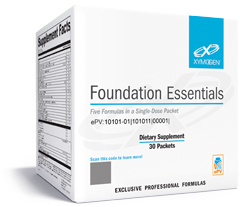
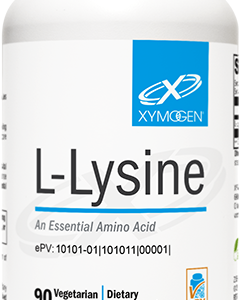
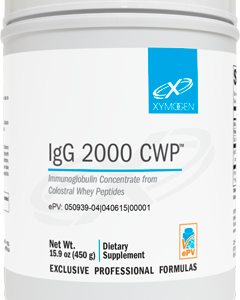
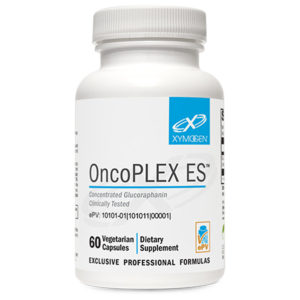
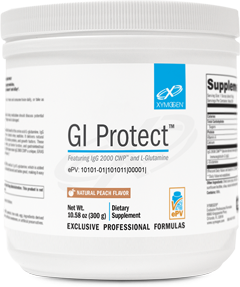
Reviews
There are no reviews yet.